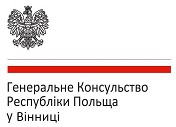Становище Німеччини у справі співпраці з Росією: нові тенденції і окремі проблеми у другій декаді XXI століття
Ключові слова:
Germany, Russia, cooperation, new tendencies, challenges, problemsАнотація
The paper synthetically presents new trends and selected issues concerning Germany’s stance vis-à-vis Russia in the second decade of the 21st century. It concentrates on an analysis of the following substantive issues:
– draft of the essence of domestic political shifts in Germany and Russia in international context;
– presentation of general assumptions featuring the new strategy in German policy vis-à-vis Russia;
– showing principal challenges as well as selected problems of German cooperation with Russia in the period 2014-17;
– underscoring new tendencies in Russia’s impingement on Germany together with German judgments as to Russia’s international role in the era of the Ukrainian crisis in light of opinion polls.
Over the years 2003-17, as a result of internal changes in Germany, a multi-party system took on a shape that made it harder to create a coalition and a new government after the parliamentary election of September 24, 2017. In Russia, in turn, the authoritarian government system with president Vladimir Putin at the helm strengthened. President Putin, through the annexation of Crimea and support for separatists in Donbas, begot to the persistent destabilization of Ukraine. The above mentioned developments were accompanied by a transition from the post-Cold War, unipolar international system, with the United States on top, towards a multipolar international system with the rising significance of China and Russia. Russia transformed into a geopolitical “competitor” of its strategic partner, Germany. On the other hand, Germany – as a leading EU and NATO state – together with France attempted to solve the Russian-Ukrainian conflict. It managed merely to achieve a partial armistice in Donbas within the framework of the OSCE mission (the Second Minsk Agreement from February 12, 2015). Due to the strong political and economic ties, Germany solely and temporarily suspended some forms of contact and cooperation with Russia and decided to reintroduce them in 2015. Germany engaged in hammering Western sanctions against Russia and their implementation during 2014-18. It concurrently supported Ukraine in its endeavors to achieve association with the EU in 2016. Simultaneously, Russia took advantage of its trump cards in the form of its presence in Germany (“Russian Germans”, media: Sputnik and RT as well as sympathy in some political and social circles) to prop up anti-Western and populist tendencies in this country.##submission.downloads##
Опубліковано
Номер
Розділ
Ліцензія
Авторське право (c) 2018 Erhard Cziomer

Ця робота ліцензується відповідно до Creative Commons Attribution-NonCommercial 4.0 International License.
Автор, який подає матеріали до друку, зберігає за собою всі авторські права та надає відповідному виданню право першої публікації, дозволяючи розповсюджувати даний матеріал із зазначенням авторства та джерела первинної публікації, а також погоджується на розміщення її електронної версії на сайті Національної бібліотеки ім. В.І. Вернадського, в міжнародних базах даних CEJSH, Index Copernicus, POL-index, Polska Bibliografia Naukowa.

